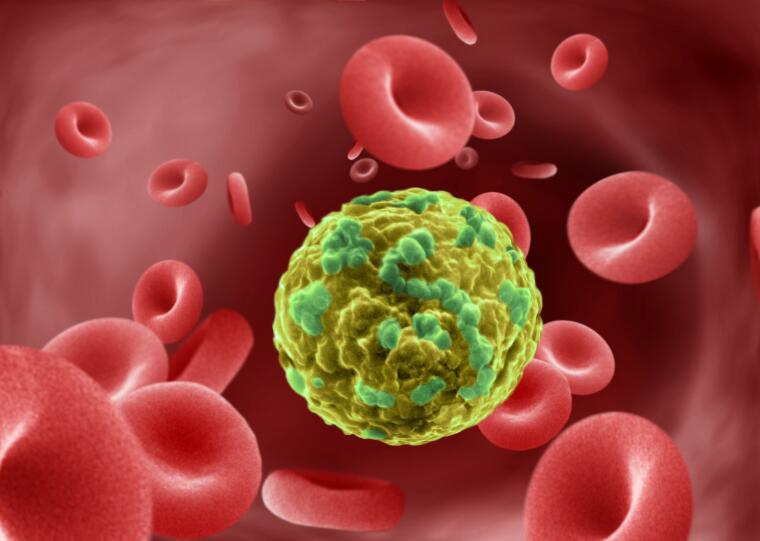Scientists uncover a promising strategy to combat leukaemia resistance
Researchers have revealed a potential new way to tackle treatment-resistant leukaemia in a study led by Barts Cancer Institute, Queen Mary University of London. The findings, published in Nature Communications, unveil how blocking a molecule called MPI exploits a vulnerability in leukaemia cells that causes them to fill with toxic fatty acids, making them highly susceptible to chemotherapies.
Acute myeloid leukaemia (AML) is a type of blood cancer that develops rapidly and often becomes resistant to treatment. Around one in three people with AML will survive their cancer beyond five years, so finding ways to overcome therapy resistance is crucial. Cancer cells often achieve this resistance by rewiring their metabolism – the molecular reactions necessary for their survival and function. By pinpointing weaknesses in cancer cells’ rewired systems, we can make them sensitive to therapies again, providing new hope for controlling patients’ cancer for longer.

Dr Paolo Gallipoli, corresponding author of the new study, is a clinician scientist working between Barts Hospital and his lab at the Barts Cancer Institute. He sees patients with AML in the clinic and runs a lab researching new approaches for the condition, bridging the clinical and academic worlds. “The two sides help each other,” Dr Gallipoli explains. “We see clinical problems first hand, and we model them in the lab to find answers to the challenges we face when we see patients.”


In a previous study, the team identified several weaknesses in leukaemia cells – critical components of the cancer cell’s molecular machinery that, when disrupted, make the cells sensitive to therapy. One weak point they discovered was a molecule called mannose-6-phosphate isomerase (MPI), which plays a part in glycosylation – the process of attaching sugar molecules to proteins. This crucial manufacturing procedure creates a multitude of molecules that carry out vital functions within cells. Conversely, disruption of glycosylation can induce high levels of cell stress.
In their new study, led by Dr Gallipoli and postdoctoral researcher Dr Keith Woodley, the team showed that inhibiting MPI makes leukaemia cells more sensitive to chemotherapy, increasing tumour cell death. Loss of MPI causes cell stress, which affects how the leukaemia cells process fatty acids – the building blocks of fats. Over time, this causes the build-up of a toxic form of these fatty acids, eventually leading to cell death.
These findings highlight a new weakness in AML that could be used to tackle therapy-resistant cancer. “Now that we have identified this target, the idea would be to see whether we can develop inhibitors against it,” Dr Gallipoli comments.
The team’s next steps will be to examine the effect of blocking MPI in healthy cells to assess any potential toxicity to normal tissues. If these results prove promising, they would look to collaborate with industry partners to develop a clinical-grade drug for further testing. Ultimately, they hope that inhibiting MPI could provide a new tool in our arsenal of therapies to keep leukaemia at bay and help more patients to survive AML for longer.
This work was funded by Cancer Research UK, Wellcome, and the American Society of Haematology. For a full list of funders for all authors, please see the original manuscript.
Category: General News, Publications

KB 18/05/2023
Brilliant news